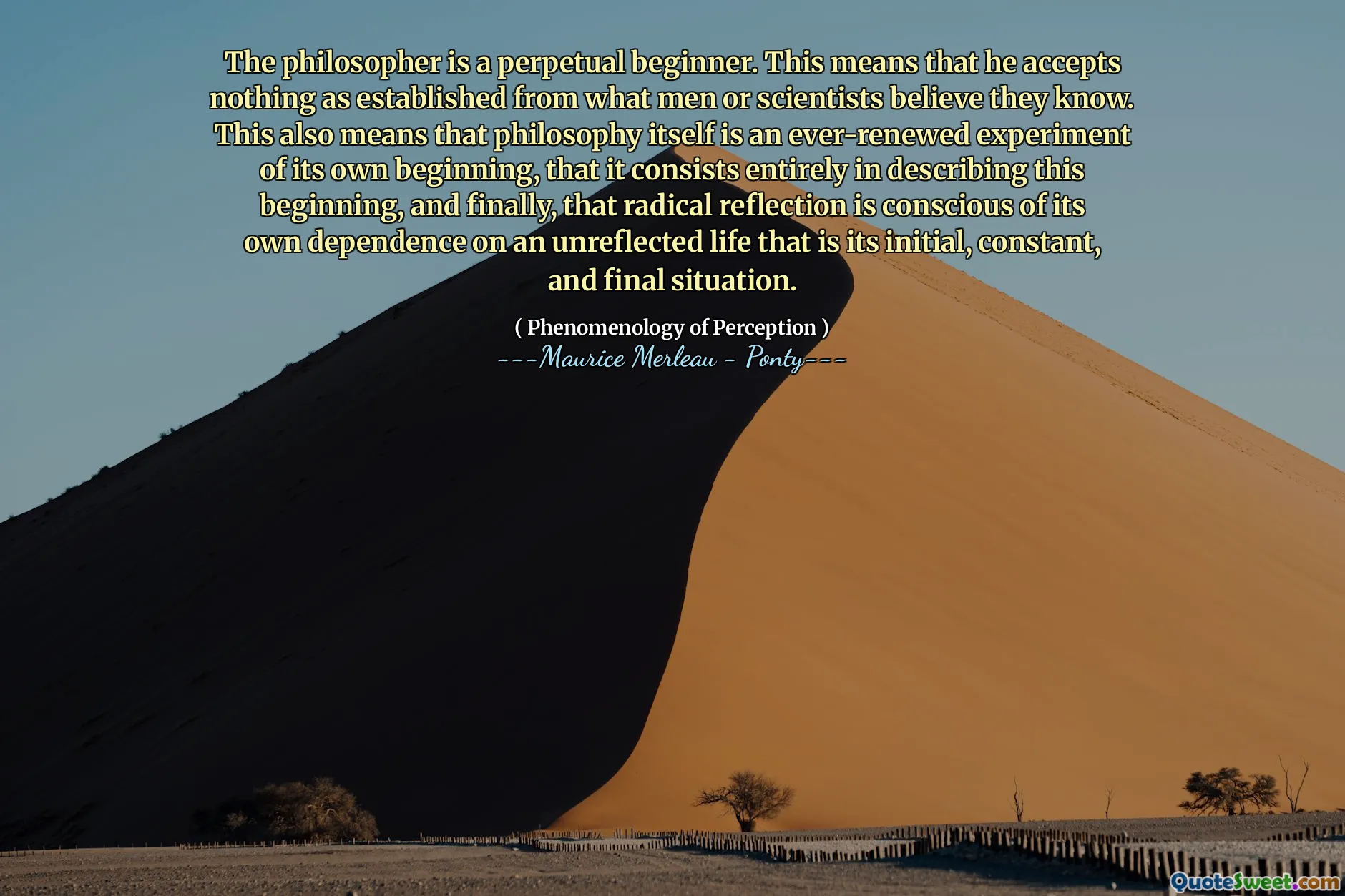
The philosopher is a perpetual beginner. This means that he accepts nothing as established from what men or scientists believe they know. This also means that philosophy itself is an ever-renewed experiment of its own beginning, that it consists entirely in describing this beginning, and finally, that radical reflection is conscious of its own dependence on an unreflected life that is its initial, constant, and final situation.
This quote from Maurice Merleau-Ponty's Phenomenology of Perception eloquently encapsulates the continuous, dynamic nature of philosophical inquiry. It suggests that philosophy does not rest on solidified, unquestionable truths but remains in a state of hopeful, humble curiosity — persistently open to re-examination and re-invention. To be a philosopher is to remain a 'perpetual beginner,' a stance that refuses the complacency that can arise from assuming that current knowledge, whether scientific or common, is final or absolute.
Merleau-Ponty's emphasis on philosophy as an "ever-renewed experiment of its own beginning" highlights its self-reflective nature. Philosophy does not simply accumulate answers but deepens its understanding by consistently revisiting fundamental questions about existence, knowledge, and perception. This recursive genesis keeps philosophy vibrant, preventing stagnation.
Moreover, the notion of "radical reflection" being coupled with an "unreflected life" reveals a profound duality. While reflection strives for clarity and critical insight, it cannot detach entirely from the unexamined, experiential life that underpins all thinking. This interplay attests to the inherent limitations and origins of philosophical thought: it is always tethered to the lived human condition that it seeks to analyze.
In essence, the quote beautifully expresses the humility and rigor that mark true philosophical practice — an endless journey of re-founding and re-interpreting, rooted in the inescapable context of everyday life. This message resonates beyond philosophy itself, reminding us that all meaningful inquiry requires openness to fresh beginnings and awareness of our foundational experiences.






